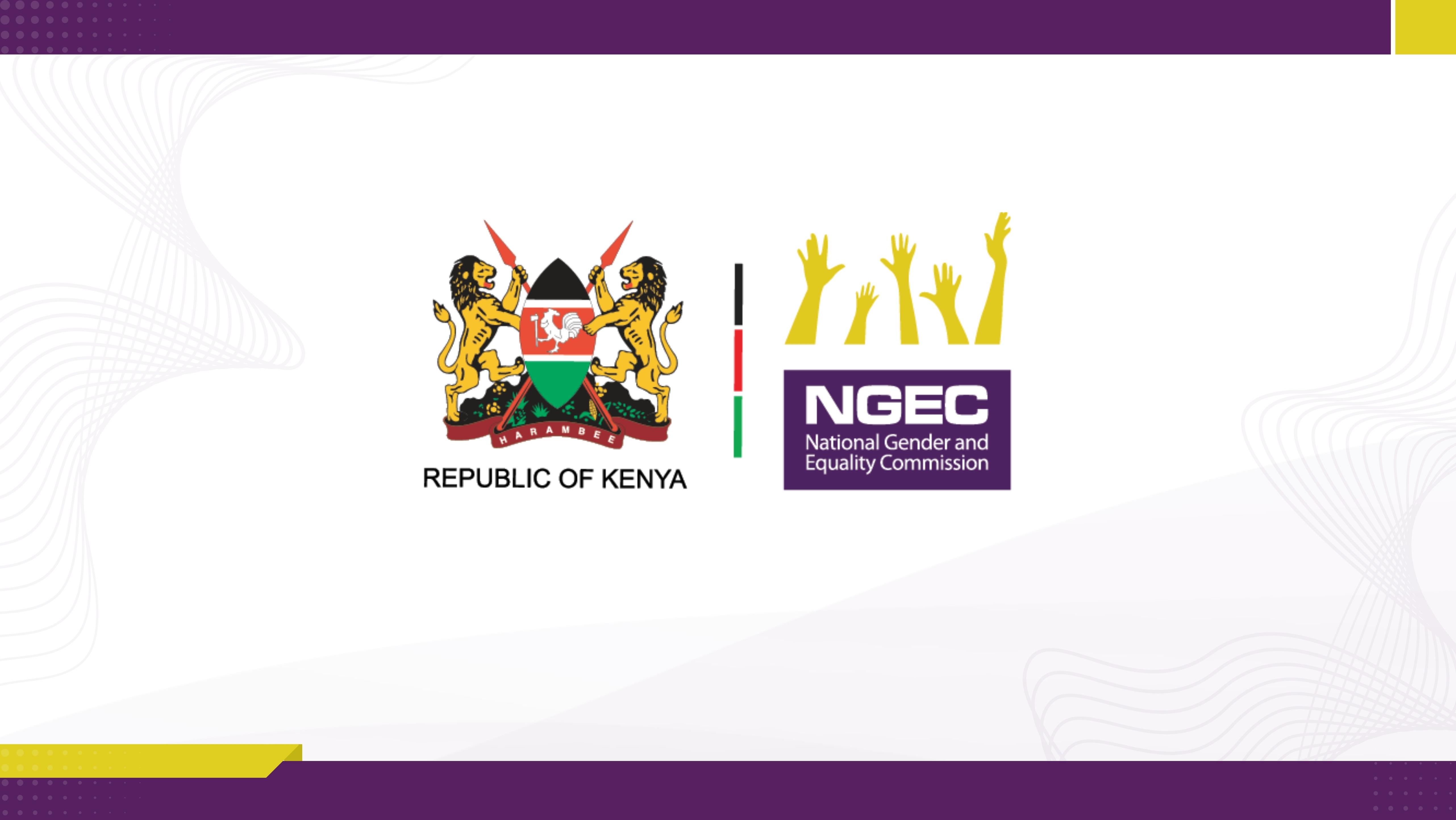NGEC Anchors Gender Equality in Economic Policy at Central Bloc Research Workshop
At the Central Economic Bloc Research Output Dissemination Workshop held on 7th and 8th May 2025 at the White Rhino Hotel in Nyeri County, the Commission firmly asserted its role as the national conscience on equality by advancing a compelling gendered lens to economic planning. Represented by Chief Executive Officer, Dr. Purity Ngina, the Commission used the high-level platform to spotlight the intersection between female wage employment, fertility trends, and inclusive policy development, positioning itself as a strategic actor in shaping equitable socio-economic transformation across Kenya’s devolved units.
The session on “Female Wage Employment and Fertility – Implications for Socio-Economic Policy” brought together leading economists, policy experts, and institutional stakeholders. Dr. Ngina joined the panel following a presentation of empirical findings by renowned scholars, where the discussion focused on how reproductive patterns among women influence their labour force participation and wage outcomes.
Dr. Ngina’s contribution extended the conversation beyond the academic realm into the policy and institutional domain, emphasizing the urgent need to translate evidence into action by mainstreaming gender and reproductive justice into economic decision-making frameworks.
From the NGEC perspective, the workshop offered an opportunity to challenge the prevailing assumption that economic productivity and reproductive health are mutually exclusive. Dr. Ngina articulated a vision where both dimensions are considered essential pillars of national development, urging county governments, policymakers, and development actors to integrate gender realities into planning, budgeting, and implementation cycles.
Her intervention reaffirmed NGEC’s mandate under the Constitution and the NGEC Act, 2011, to influence public policy, monitor compliance, and promote equality and inclusion in all spheres of life.
As discussions unfolded, NGEC advanced a policy argument grounded in the lived experiences of women and girls, particularly those in rural and low-income settings. The Commission emphasized the structural barriers that continue to limit women’s access to formal employment, such as lack of childcare infrastructure, limited maternity protection, and rigid workplace cultures that fail to recognize the reproductive burdens women carry. Through the lens of the fertility-employment nexus, NGEC advocated for more flexible, gender-responsive programming that allows women to thrive economically without being penalized for motherhood.
The workshop also served as a space for reinforcing NGEC’s commitment to evidence-based policy engagement. By aligning with academic institutions such as Kenyatta University’s Women’s Economic Empowerment (KUWEE) Hub and participating in collaborative forums, the Commission demonstrated its intent to bridge the gap between research, advocacy, and public policy. Dr. Ngina reiterated the importance of disaggregated data in exposing inequalities and guiding responsive interventions, particularly in counties where cultural norms and economic exclusion are deeply entrenched.
The Commission pledged to integrate the workshop findings into its upcoming policy advisories to both national and county governments, ensuring that recommendations around gender, employment, and fertility are embedded in County Integrated Development Plans and national labour strategies. Furthermore, NGEC committed to working alongside other institutions in developing a joint policy brief that captures the research outcomes and policy proposals generated during the workshop.
As the two-day event concluded, NGEC emerged as a critical voice in reimagining Kenya’s economic future through the prism of equality and inclusion. The participation of its leadership in technical discussions and the proactive articulation of institutional priorities signaled the Commission’s growing influence in socio-economic discourse. The Central Bloc Workshop underscored the reality that economic development devoid of gender analysis is incomplete, and that Kenya’s aspirations for prosperity must be matched by deliberate, inclusive, and justicedriven policy choices.


Comments